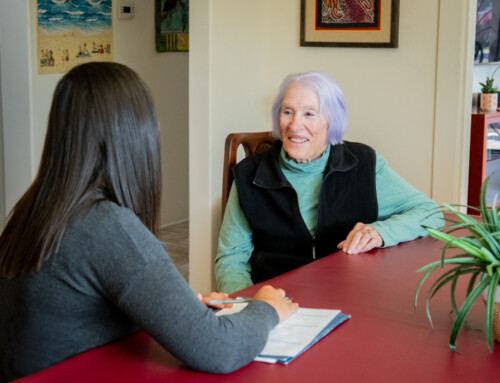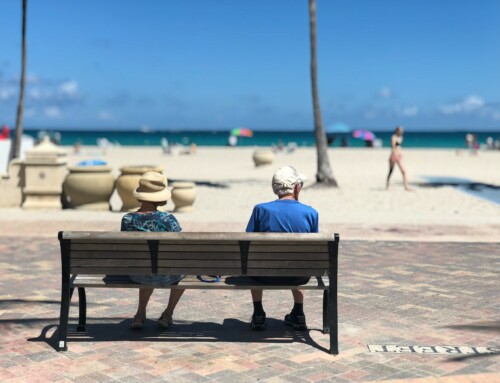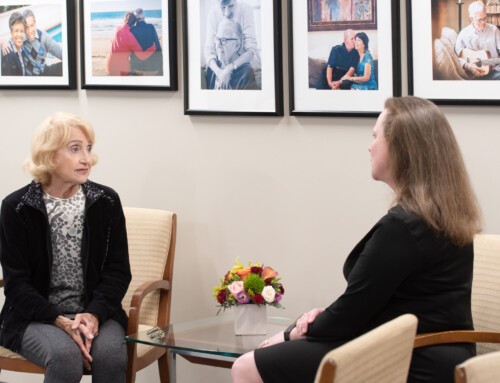
As the San Diego heat continues, it’s important to keep hydration top of mind. For people living with dementia, drinking water may not be the first thing they are thinking about and depending on what stage they are in, they might have difficulty recognizing when they’re thirsty. It is important to set up the kitchen for success. This includes making sure it is clear where water and cups are stored, how to turn the faucet or even labeling drinkable items in the fridge. Offering fluids and hydrating foods regularly helps maintain healthy hydration levels throughout the day. When a person is dehydrated, several issues may be presented that can cause further health complications.
Dehydration Concerns
- Higher likelihood of urinary tract infections (UTI)
- If an infection is left untreated, it can create psychotic thoughts, hallucinations, and behavioral changes attempting to express pain
- Higher likelihood of wandering due to discomfort and agitation
- Muscle cramping in arms and legs
- Increased falling risk due to postural hypotension, which is decreased blood pressure to the brain when moving from laying down to sitting up or from sitting to standing
- Fatigue and weakness as brain conserves fluids and energy
- Increased irritability
- Dry mouth, eyes, and lips
- Dark and/or strong smelling urine, which can lead to kidney damage and failure
- Kidneys start to malfunction when urine becomes too concentrated
- Decreased cognitive abilities that cause more confusion and disorientation to places, time, and situations
Hydration Tips
- A certain amount of water is essential, but if the person prefers something else, you can mix in juices, flavored water, teas, etc.
- Incorporate stimulating foods that provide liquid intake like soups, fruit, vegetables, jello, apple sauce, and popsicles
- There are also sugar free candies made specifically for hydration that are popular among people living with dementia
- Pre-cut water soluble fruits that are accessible and easy to identify
- Avoid caffeinated beverages and alcohol which contribute to dehydration
- Place beverages in visible areas and on a shelf that is easy to reach
- Make it fun – Brightly colored and appealing cups can help draw attention to drinks, also think about using straws when needed
- Leave notes around the home or set a reminder/alarm for times to hydrate
- Label water bottles “1,2,3,4” to help keep track of how much liquid has been consumed
Other Ways to Stay Cool
- Loose fitting and light colored clothing is best for hot weather; add headwear when outdoors
- Keep fans and cold wash cloths around the home
- Have sunscreen on hand and reapply occasionally if out in the sun
- Keep curtains and blinds closed during the day to minimize heat entering the home
- Consider blackout curtains if you reside inland where the temperatures are higher
- Find enjoyable indoor spaces that you and your person can enjoy throughout the week
- We offer free indoor Social Activities every Friday
Check out San Diego County’s Cool Zones to see where to find air conditioned spaces in your area. For more information, call us at 858.492.4400 to speak with one of our dementia experts who are here to help San Diego County residents and/or those caring for someone living in San Diego County (Spanish speakers available). Also check out our free education classes, social activities, care partner support groups, & more.
By Braulio Ambriz
RECOMMENDED: Essential Tips for Living Alone with Memory Loss
Updated on September 11th, 2024
(Sources: Teepa Snow, Banner Health, Alzheimer’s Society UK)




